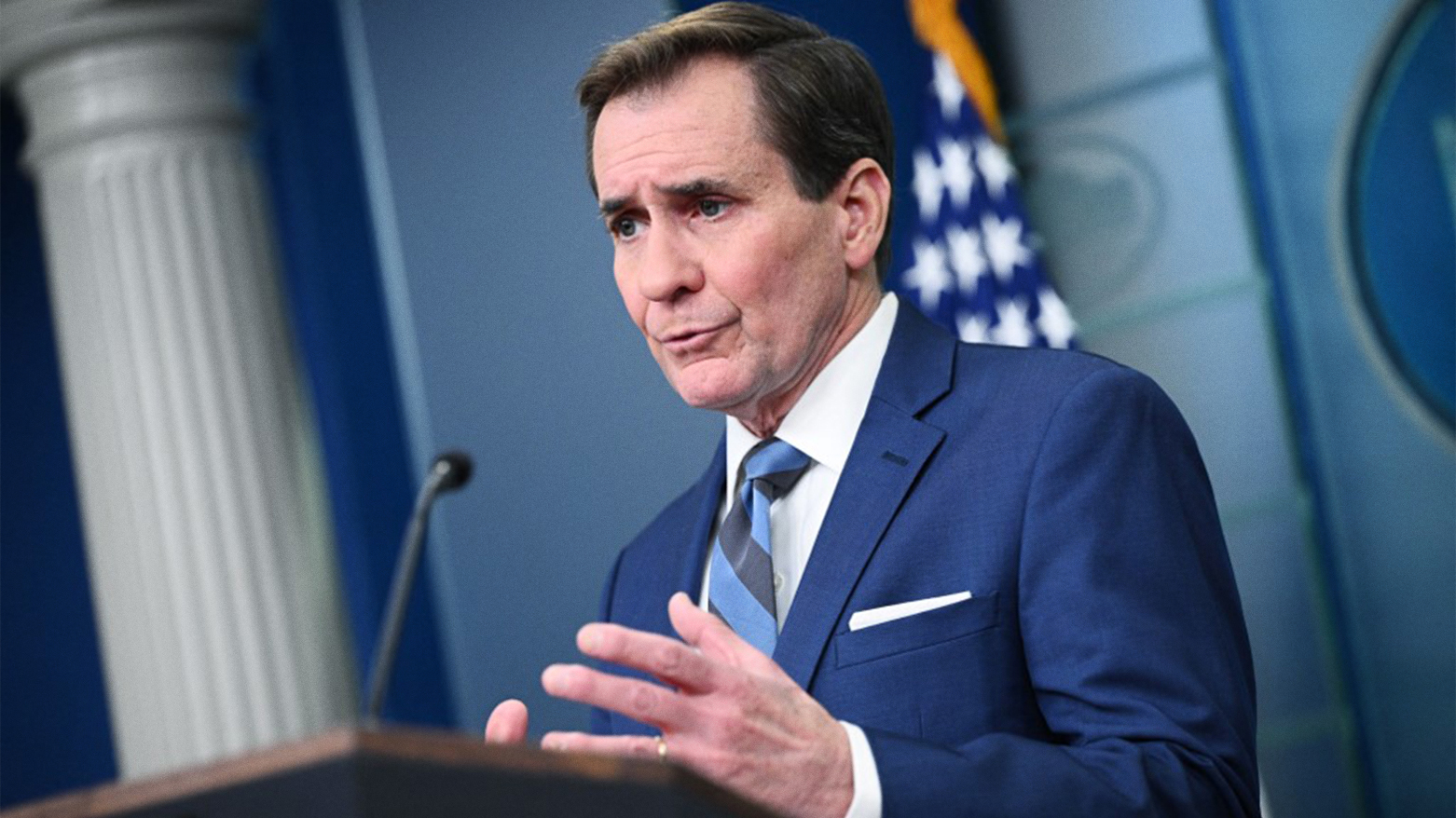Gaza Ceasefire Talks on Track, Despite Large-scale Attacks between Israel and Hizbollah: White House
“The working groups are now meeting” and “there continues to be progress" in the ceasefire talks between Israel and Hamas in Cairo, Kirby said.

WASHINGTON DC, United States (Kurdistan 24) – Despite the massive exchange of fire between Israel and Hizbollah on Sunday, talks in Cairo on arranging a ceasefire between Israel and Hamas have continued without interruption, White House National Security Communications Advisor, John Kirby, told reporters on Monday.
Sunday’s exchange marked the most intense conflict between Israel and Hamas since Oct. 7, when Hamas triggered the current fighting, including between Hizbollah and Israel, with a bloody and brutal cross-border attack into Israel.
Hizbollah Attacks
Indeed, Sunday’s military exchange marked the most intense fighting between Israel and Hizbollah in nearly two decades—since 2006. Then, the two parties fought a war for 34 days.
The results were devastating for Lebanon. Around one million Lebanese were obliged to flee their homes. Some 1200 Lebanese were killed, while civilian infrastructure in the south of the country was badly damaged.
Thus, for the next 18 years, Hizbollah avoided provoking its southern neighbor—until Sunday. Israel had intelligence about Hizbollah’s intent to launch a massive assault and pre-empted with its own attack, carried out by 100 planes, on Hizbollah military targets, including the launchers and drones which Hizbollah planned to use for that attack.
Nonetheless, Hizbollah was still able to attack Israel, targeting it with 230 rockets and 20 drones. Most of them were shot down by Israeli air defenses or landed harmlessly in open areas.
Thus the casualties, on both sides, were relatively light: three Hizbollah fighters and an Israeli soldier.
White House: Israel-Hamas Ceasefire Talks Were Not Affected
Answering journalists’ questions in a press briefing on Monday, Kirby said that the dramatic exchanges between Israel and Hizbollah the day before had not affected the negotiations in Egypt to arrange a ceasefire between Israel and Hamas.
“There was not an impact on the talks in Cairo,” Kirby asserted, “The working groups are now meeting,” and “there continues to be progress,” while the U.S. team in Egypt “continues to describe the talks as constructive.”
Despite Hamas’s giving the impression that it is not a party to those talks, Kirby affirmed that it, in fact, is participating in those negotiations.
“Hamas continues to be represented as these working group meetings are going on, as we speak here, and over the next few days,” he said.
Kirby declined to provide a time frame for the negotiations, saying that It “really is going to be up to those in the room and what they’re able to accomplish.”
Achieving a ceasefire in Gaza is a top U.S. priority, as Kirby stressed. The Biden administration sees the fighting in Gaza as driving the conflict between Israel and Hizbollah, as well as the Houthis’ attacks on international shipping in the Red Sea and Gulf of Aden. In addition, it fears an Iranian attack on Israel, in retaliation for Israel’s assassination of the Hamas leader, Ismail Haniyeh, in Tehran, on July 31.
A ceasefire between Israel and Hamas would relieve the pressure in all those conflicts, in the U.S. view.
So ”we want to get this ceasefire deal as soon as possible,” Kirby said. “We haven’t taken our foot off the gas,” and "the same sense of urgency exists now as it did months ago.”